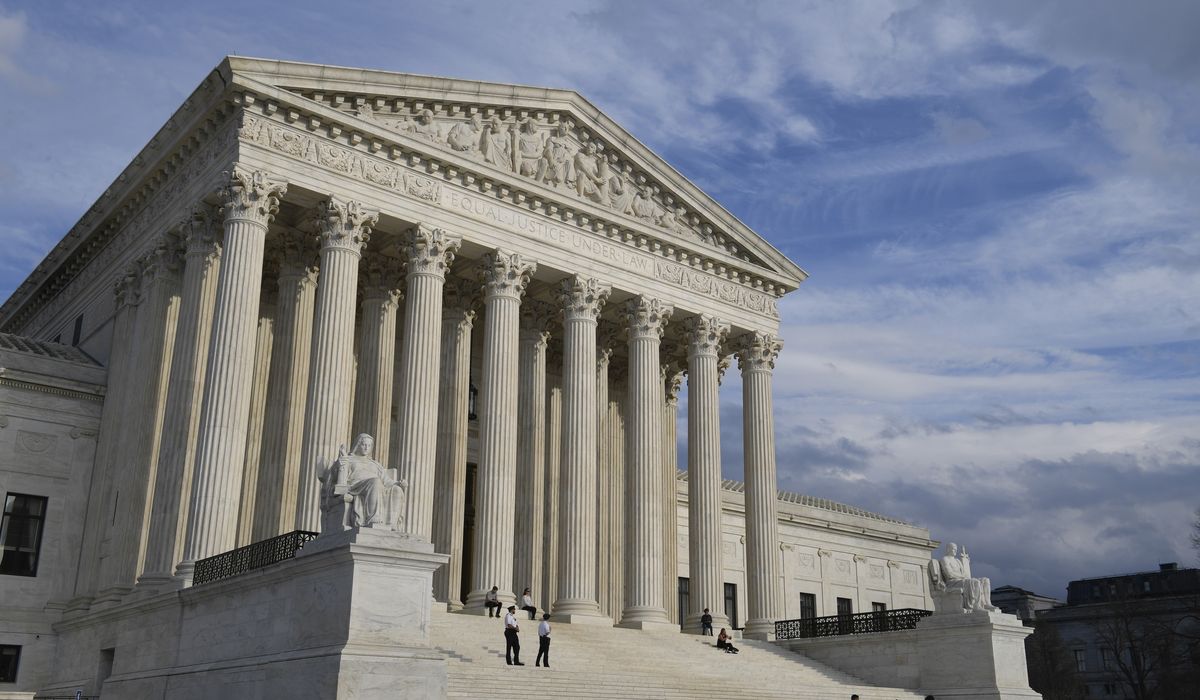Supreme Court to Consider Case on Public Officials Blocking People on Social Media
October 26, 2023 | by Kaju

The Supreme Court next week will consider the First Amendment rights of public officials’ use of social media accounts versus the rights of citizens to see what the officials are posting — and whether it’s unlawful for them to be blocked.
It’s not the first time this type of free speech battle has come before the courts: Former President Donald Trump was sued for blocking people on Twitter during his administration.
The justices didn’t hear Mr. Trump’s case, so Tuesday will be the first time they weigh the First Amendment rights of public officials and those of their constituents.
Nonetheless, Mr. Trump will likely be on the justices’ minds when they grapple with the breadth of their decision, especially given his use of social media as a candidate and his potential return to the White House, said Josh Blackman, a professor at South Texas College of Law.
“This is all about Trump, as I suppose most things are,” Mr. Blackman said. “The issue will still sort of percolate for the foreseeable future because now you have these other officials — you have school board members, sheriffs and the like who are again blocking people for various usage.”
Mr. Blackman said the court will have to deal with the two types of free speech claims — the rights of citizens to communicate with a representative and the rights of politicians to post what they want.
“There are really First Amendment issues on both sides of this case,” he said, but cautioned that he doesn’t think the act of blocking on social media will be designated a state action, conduct typically linked to official governmental duties, by the justices.
“The court will probably just hold the blocking is not state action, so the First Amendment is not implicated,” Mr. Blackman said.
A federal appeals court ruled in 2019 that Mr. Trump’s use of his personal Twitter account for posts related to his position as president and communicating with the public meant he could not block critics from seeing the posts.
Mr. Trump had used the account before becoming president and continued to use it to communicate during his official duties. The appeals court said the blocking was a violation of the viewers’ First Amendment rights.
Mr. Trump left office before the justices could consider his appeal.
The justices will hear conflicts over the same clash of free speech concerns raised in two separate cases — one involving a city manager in Michigan, the other about school board members in California.
Both cases revolve around community leaders blocking critics on social media.
Kevin Lindke sued James Freed, the city manager of Port Huron, Michigan, after he was blocked on Facebook for repeatedly commenting on posts about the COVID-19 pandemic.
Mr. Lindke, as a resident of Port Huron, argued in his court filing that Mr. Freed used his Facebook page for personal and professional posts, including sharing important data on COVID-19. He claimed his First Amendment rights were violated by being blocked.
A district court dismissed his case, finding that Mr. Freed’s use of the Facebook page did not constitute state action so the First Amendment did not apply. The 6th U.S. Circuit Court of Appeals affirmed that lower court decision.
The other case comes out of the 9th U.S. Circuit Court of Appeals, where members of a school board in San Diego blocked parents on Facebook and Twitter.
Board members told the high court in their filing that the accounts were maintained without government funding, and the parents were blocked after spamming the accounts. The parents had commented about racist incidents and financial mismanagement, according to court records.
Splitting from the 6th Circuit, the 9th U.S. Circuit Court had ruled against the board members, reasoning the social media accounts showed posts and communications related to professional duties.
It’s these sorts of circuit-court splits that usually prompt the justices to take up an issue.
The two cases are Lindke v. Freed and Michelle O’Connor-Ratcliff, et al. v. Christopher Garnier, et ux. A decision isn’t expected right away, but will likely come by the end of June from the high court.
Jasmine Johnson Parker, managing member at Jasmine Johnson Law, said courts have to engage in a “balancing act” in deciding whether social media accounts are for personal use or a public forum.
“With social media serving as our modern-day soap box to criticize, condemn, and support government policies and issues, it is likely courts will grant users broad protection of their First Amendment rights, absent harassment, threats, or misinformation,” Ms. Johnson Parker said.
She noted that public officials also have a right to privacy and can block users to stop online harassment or threats.
“If a social media account is deemed a public forum because of its use for official communication, the ability to block can be legally limited. However, courts might recognize exceptions for clear cases of harassment or threats, understanding the need to maintain the safety and mental well-being of the public official,” Ms. Johnson Parker said.
Leslie Y. Garfield Tenzer, a law professor at Pace University, said there is a “gray area” between public officials being able to block people and stop harassment and the rights of others to view online posts.
She said the legal protection social media companies enjoy under Section 230 of the Communications Decency Act, which allows the companies to be immune from certain lawsuits over content posted by third parties, should be amended to prevent any online harassment.
“If public officials want to stop allowing harassing information, I think they must address it by amending Section 230 of the Communications Decency Act, which is a difficult, if not impossible task,” Ms. Tenzer said. “I also think as a mother, and a social media scholar, that publishing anti-hate rhetoric or posts that teach others to kill should never be permitted. But as long as section 230 exists, I think it is hard to hold social media companies accountable.”
RELATED POSTS
View all


